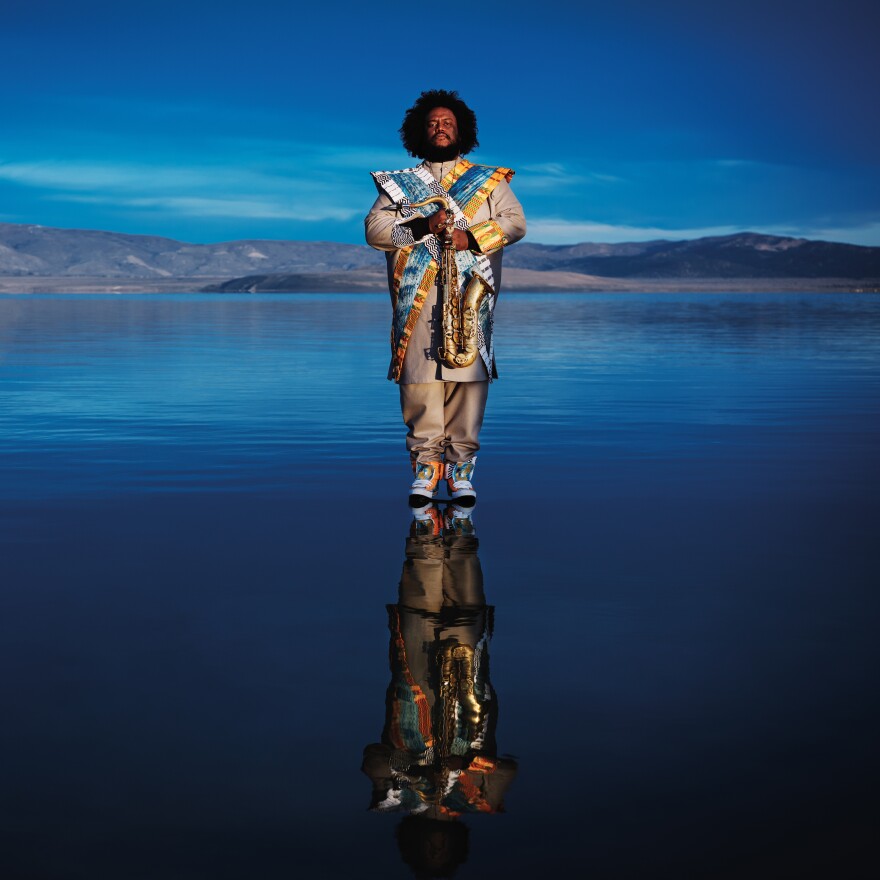Kamasi Washington's idea of heaven is the world he creates and retreats to in his mind. The jazz torchbearer's double album Heaven and Earth, out today, represents that inward heaven versus his outward reality on Earth.
Growing up in Los Angeles, Washington was known in school for playing renditions of Boyz II Men and Jodeci songs on his clarinet. Now, he's mentioned in the same breathe as rapper Kendrick Lamar — Washington's saxophone skills can be heard on Lamar's 2015 album To Pimp A Butterfly — as major players in a larger celebration of black culture.
"I feel like we're in that turning point right now," Washington says. "It's been a long time coming. It's weird, it's like culturally we've been appreciated in a certain sense, but not necessarily celebrated. And now we're going to celebrate the culture."
For Heaven and Earth, Washington tapped into creative escapes in the form of the video game Street Fighter and movie Fist of Fury, both of which found their way into song titles ("Fists of Fury," "Street Fighter Mas") on the album. Washington tells NPR's David Greene about the movie's influence and explains the deeper sentiments expressed in his music. Read the edited interview highlights below and listen to their full conversation at the audio link.

Interview Highlights
On the meaning of "Fists of Fury"
At a certain point, when there's a barrier between you and what's right, eventually you have to decide you're not going to allow yourself to be subjugated. For me, that song is that decision and recognition of the fact that I see what's happening in the world, and I'm no longer going to wait for someone else to fix these things that are happening in the world. I'm going to do it myself.
On his 2017 LP Harmony of Difference
Harmony of Difference to me was an opportunity to celebrate one another. And "Fists of Fury" is an opportunity for us to protect one another. If you look up, and you see that all of a sudden the world is really coming down on people with brown hair, I would think the people with black hair would look at that and go, "Well, that could be me and so, I shouldn't stand for that any more than those people with brown hair stand for it." Harmony of Difference is about appreciating the fact we have people with brown hair, black hair, blonde hair, green, blue.
On empathy
This precious thing of empathy and love and understanding is something we have to hold and appreciate and protect. That's why I was saying Harmony of Difference and "Fists of Fury," they're together. It's like, "I understand, and I see who you are, and I love who you are, and I love what you are even though it's not what I am. I'm also going to protect you, and you're going to protect me. We're going to work to make the world what we want it to be."
Copyright 2021 NPR. To see more, visit https://www.npr.org.





